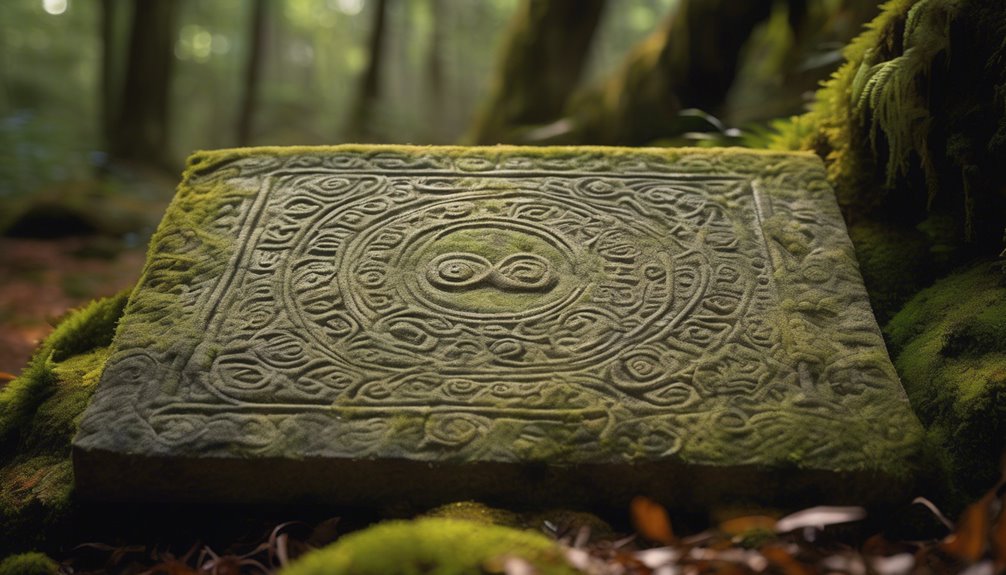
Have you ever noticed how spiritual concepts often come wrapped in riddles? It’s intriguing how these puzzles invite you to think deeper about your beliefs. They challenge you to question everything you thought you understood, opening up pathways for personal growth. But why is that the case? What’s behind this playful yet profound way of conveying spiritual truths? Exploring this could uncover insights you might not have considered before.
Key Takeaways
- Riddles encapsulate complex spiritual truths, provoking curiosity and deeper thought about existence and meaning.
- They encourage personal exploration and interpretation, allowing individuals to derive unique insights from abstract concepts.
- Historically, riddles have been integral in spiritual practices, promoting introspection and connection with the divine.
- Spiritual riddles challenge conventional thinking, fostering a playful yet profound approach to exploring life’s mysteries.
- By evoking contemplation, riddles guide individuals in examining their beliefs and confronting existential questions.
The Nature of Spiritual Truths
While spiritual truths often seem elusive, they can profoundly shape your understanding of existence. You might find that these truths often manifest through abstract concepts, challenging your perceptions and pushing you to explore deeper meanings. Engaging with such ideas can lead to mystical experiences, where moments of clarity transcend ordinary understanding. These experiences can feel like glimpses into a greater reality, urging you to question the nature of your beliefs and assumptions. As you investigate these riddles, you’ll discover that they serve not only as puzzles but also as pathways to profound insights. Embracing the ambiguity of spiritual truths can enrich your journey, prompting personal growth and a deeper connection to the world around you.
Historical Context of Riddles in Spirituality
Throughout history, cultures have woven riddles into their spiritual practices, recognizing their power to provoke thought and contemplation. Ancient cultures often used riddles in sacred texts to engage followers, encouraging them to explore deeper meanings. For instance, the ancient Greeks incorporated riddles into oracles and philosophical dialogues, prompting seekers to reflect on life’s mysteries. Similarly, many Eastern traditions, like Buddhism, feature koans—enigmatic questions meant to challenge conventional thinking. Riddles not only serve as tools for teaching but also invite personal exploration of spirituality. By wrapping profound truths in layers of complexity, these ancient practices foster a sense of curiosity and introspection, allowing individuals to connect with the divine in a unique, transformative way.
The Role of Personal Interpretation
As you engage with spiritual riddles, your personal interpretation becomes an essential part of the experience. Each riddle invites you to explore your own beliefs, allowing you to uncover personal insights that resonate deeply. What may seem like a simple phrase to another can hold subjective meaning for you, shaping your understanding of spirituality.
| Aspect | Description |
|---|---|
| Personal Insight | Your unique understanding of the riddle. |
| Subjective Meaning | The emotional or spiritual significance you attach to it. |
| Interpretation Style | How your background influences your view. |
| Riddle Impact | The way it challenges or affirms your beliefs. |
This dynamic interaction enriches your spiritual journey, making each riddle a personal adventure.
Encouraging Contemplation and Reflection
How do spiritual riddles inspire deeper contemplation and reflection? They provoke your mind to wander beyond the surface, urging you to engage in meditative practices that foster insight. When you encounter these riddles, you’re prompted to pause and examine your thoughts, unraveling the layers of meaning hidden within. This process often leads you to confront existential questions—your purpose, beliefs, and the nature of reality. Instead of providing straightforward answers, spiritual riddles encourage you to explore your inner landscape, leading to personal revelations. As you reflect on these enigmatic phrases, you cultivate a deeper understanding of yourself and the world around you. Ultimately, this journey nurtures your spiritual growth, inviting you to embrace the unknown with curiosity and openness.
Modern Applications of Spiritual Riddles
While spiritual riddles have ancient roots, their modern applications resonate powerfully in today’s fast-paced world. You might find that these metaphysical puzzles serve as essential tools for personal growth and understanding. Here’s how they can impact your life:
Spiritual riddles bridge ancient wisdom and modern life, fostering personal growth and deeper understanding in our fast-paced world.
- Encourage deeper thinking about life’s mysteries
- Foster connections through shared exploration of wisdom teachings
- Provide a playful way to engage with spirituality
- Challenge your assumptions and beliefs
- Inspire creativity and intuition in problem-solving




